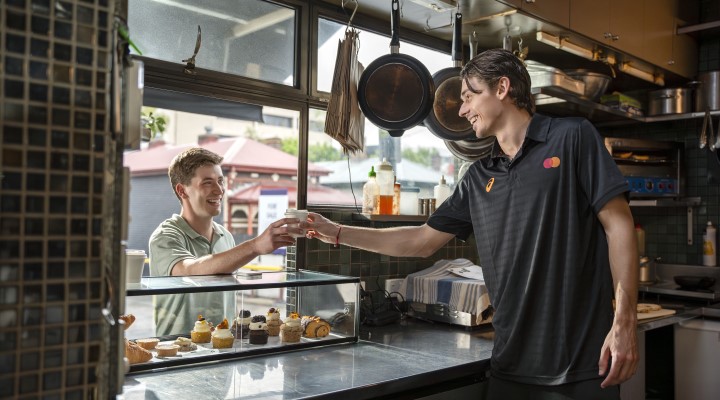Melbourne small businesses in the hospitality and accommodation sectors are predicted to have received a big revenue boost during the Australian Open, according to Mastercard Economics Institute’s (MEI) research that looked at spending behaviour during the Grand Slam in 2023 as a guide to what may be expected this year.
MEI analysis shows that the biggest spending boost in 2023 was in accommodation, with the spending in hotels in the CBD and neighbouring areas increasing by an extra 13.0 per cent due to the tournament. Furthermore, Mastercard’s SpendingPulse, an indicator for retail spending that measures in-store and online retail sales across all forms of payment, estimates that Melbourne retailers, especially those in experience and fashion-related sectors, will likely increase sales during the tournament in 2024. Compared to the two weeks preceding the competition, total retail sales (excluding auto) are expected to have grown by 12.6 per cent during the event, driven by in-store sales of apparel, restaurants and accommodation.
Digital and online modes of payments, such as mobile wallets and app-based food delivery services, also added an incremental boost to small businesses, with quick-service restaurants (QSRs) surging in online spend during the tournament. In fact, the share of online spending at QSRs in the CBD was 2.2 per cent higher vs. the remainder of Q1 2023.
The tournament’s impact was also felt beyond the central business districts as tennis fever led to increased spending in prominent shopping malls and eateries in the suburbs. For instance, shoppers flocked to Waverly Gardens and Springvale, spending mostly on sporting goods, apparel, and footwear at a 3.7 per cent increase (highest across the city) vs. the rest of Q1 2023. Garden City, an affluent residential area southwest of the Melbourne CBD, saw an additional increase only second to what was seen in the CBD during the event in 2023 vs. the rest of Q1 2023.
“Each year the tennis sees Melbourne come alive as fans from around the country, and indeed the world, seek out the very best the sport and city have to offer,” David Mann, chief economist in Asia Pacific at the Mastercard Economic Institute, commented. “The data suggests the tournament provides a significant shot in the arm for the local economy, so tapping your phone at your local high street this January has more impact than you realise.
“The reach of the tournament goes far beyond Melbourne Park, and for two weeks every January, Australians turn up at their local pub to watch with friends, discuss the matches over a meal, or even head to the local sports store to pick up a racquet and hit the court themselves – all of which give small businesses a much-needed boost to their bottom line,” Mann added.
To celebrate the way small businesses bring the community together during the Open, Mastercard arranged for Aussie world number 10 player Alex de Minaur to make coffees and help out with other tasks at Pound Cafe in South Yarra before the tournament.
“The tennis is a massive part of summer in Melbourne and brings so many people to the city, providing an awesome boost to small businesses like ours,” the cafe’s owner, Nick Hoban, said. “During the two weeks of the tournament, we see the community come alive, uniting over their shared passion for the tennis and a great cup of coffee.”















